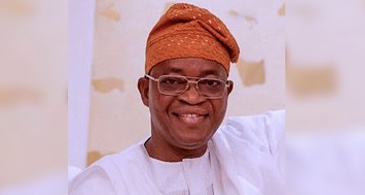- Governor Sanwo-Olu flags off Ojota-Opebi Link Bridge, to be completed in 20 months
- Allow Nigeria go to 2022 World Cup, don’t play qualifiers – Ghana Parliament member tells Black Stars
- There was no second sex tape, Kim Kardashian refutes Kanye West’s claims
- Jaruma Remanded In Prison Over Post On Regina Daniels And Ned Nwoko
- Lanre Gentry confirms paternity of last son with Mercy Aigbe, says ‘He’s my son’ (Photo)
Supreme Court Affirms Oyetola’s Victory In Osun Election

The Supreme Court has dismissed the appeal filed by the Peoples Democratic Party (PDP) and its governorship candidate in the September 2018 election in Osun State, Ademola Adeleke, challenging the election of Governor Adegboyega Oyetola of the All Progressives Congress.
The apex court in a split decision of five to two members of the panel, on Friday, agreed substantially with the Court of Appeal which ruled that a majority judgement delivered at the tribunal was a nullity.
The court said the judge who had read the majority judgement at the tribunal, Peter Obiora, was evidently absent on February 6th 2019, following the documents before the court.
It agreed with the appeal court that the absence of Justice Obiora when a key witness in the petition was heard has rendered the judgment of the trial tribunal a nullity. And that the failure of Mr Obiora to be present on that day meant that the tribunal lacked the authorities to have given any judgment on the matter.
Justice Bode Rhodes- Vivour who delivered the majority judgment supported by five of the seven-justice of the Apex court panel held that it is settled law that when the rightly constituted panel of a court does not seat the activities carried out by that panel is a nullity.
The Acting Chief Justice of Nigeria, Justice Tanko Muhammad, and three other members consented to the lead majority judgment.
But Justice Kumai Akaahs and Justice Paul Galinje affirmed PDP as the winner of the poll.
Justice Akaahs in his minority judgment held that the Independent National Electoral Commission (INEC) in an election ought to remain an unbias umpire because even when it erred in law by relying on it’s manual to cancel some aspect of the election, the applicant still met the constitutional requirements of having the highest votes cast and spread. But the Election umpire went ahead to cancel the election and carried out a rerun showing that INEC had a plan up its sleeves.